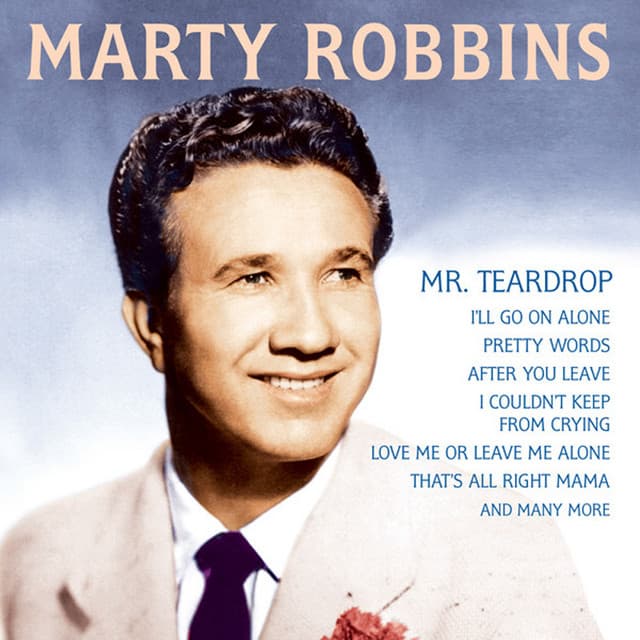
🎶 A Lonesome Journey: The Triumph of Self-Penned Heartbreak 💔
The enduring ballad of “I’ll Go On Alone” is a reflection on facing the desolation of lost love with lonely resolve.
Oh, the early days of country music often held a certain unvarnished truth, didn’t they? And few songs capture that poignant, simple heartache quite like Marty Robbins’ debut chart-topper, “I’ll Go On Alone.” Released on October 10, 1952, on Columbia Records, this deeply personal ballad was more than just another record; it was a watershed moment for a young man who would become one of the genre’s most versatile and enduring stars. It marked his first major success, rocketing straight to Number 1 on the Billboard Country charts, where it stayed for two weeks in late 1952 and early 1953. This self-penned hit, recorded at Jim Beck’s studio in Dallas, Texas, with a backing band that included talents like Johnny Gimble on fiddle, was the launching pad for a legendary career that would span decades and genres.
The meaning of “I’ll Go On Alone” is right there in the title, a universal tale of a proud heart choosing solitude over the pain of a lover’s leaving. It’s a beautifully simple testament to resilience—the moment one decides to swallow the hurt and face the world unburdened by a past relationship. This wasn’t just a song Marty Robbins sang; he wrote it, pouring his own emotional landscape into the verses. The story behind it is, in essence, the story of his early professional breakthrough. Having started his musical journey after teaching himself guitar while in the U.S. Navy during WWII, Robbins was performing in Phoenix, Arizona, and even had his own local radio and TV shows. His big break came through the encouragement of fellow country star Little Jimmy Dickens, who helped secure him a contract with Columbia Records. When “I’ll Go On Alone” hit the airwaves, it resonated instantly with a post-war audience that appreciated its sincerity and straightforward delivery.
The song’s genius lies in its quiet dignity. It avoids the theatrical despair of some country ballads and instead opts for a stoic acceptance. The narrator, though devastated, refuses to beg or plead. He acknowledges the departure—”You say that you must leave me”—but then resolutely declares his independence: “I’ll go on alone.” This sentiment spoke volumes to listeners who understood that sometimes, the greatest act of love—or self-respect—is simply letting go. The spare arrangement, featuring the weeping fiddle and the gentle rhythm section, underscores the nostalgia of the era, evoking those quiet, late-night radio moments where a lone voice and a guitar could fill a room and mend a broken spirit. It set the stage for the narrative skill he would later perfect with his Gunfighter Ballads and Trail Songs album, making it clear from the very beginning that Marty Robbins was a storyteller of the first rank. It’s a treasure from the golden age of country music, a reminder of the power in saying goodbye with a quiet, firm voice.